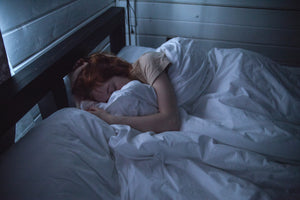12 Proven Ways To Sleep Better
Key Takeaways:
-
Reduce food and water intake close to bed time.
-
Increase daily activity.
-
Reduce caffeine intake overall.
-
There are tons of ways to improve sleep quality, start simple and go from there.
A good night's sleep is a key pillar to health benefits. Without high quality sleep, your life can suffer dramatically. This can lead to early onset disease, low energy throughout the day, increased risk of heart attack and stroke, obesity and much more. There are a few simple ways this can all be avoided and your path to better sleep patterns and healthy sleep can start.
1. Reduce Caffeine Intake

A large issue with caffeine is its long half life of roughly 5 hours. This means that if you consumed only 200mg of caffeine, 5 hours later there would still be 100mg left in your system. This can dramatically disrupt quality sleep and make it exceedingly difficult to fall asleep. Try your best to avoid caffeine 8-10 hours before bed.
2. Avoid Liquids 2 Hours Before Bed
Avoiding liquids before bedtime is something many people fail to consider. If you drink some sort of liquid close to bed time, you may be up quite frequently to urinate, which disrupts sleeping patterns and could lead to you having trouble falling asleep after. Cutting off liquids two hours prior to bed time is optimal for most people.
3. Avoid Food 3 Hours Before Bed
For both digestive health and quality sleep, avoiding food prior to bed time is important. When our bodies are horizontal, digestion is slowed, this is why it is beneficial to take a quick walk after each meal that you consume. Avoiding food before bed will also allow you to fall asleep faster as your body will be more ready for sleep.
4. Avoid Alcohol 3-4 Hours Before Bed
Not only should you avoid liquids close to bed time, you should separate alcohol even further from the time you go to sleep. 3-4 hours, depending on your amount of alcohol consumption is typically enough time to let your body metabolize the alcohol, to improve sleep. Alcohol directly impacts the amount of time spend in REM sleep, which could leave you with symptoms of poor sleep or sleep deprivation for mornings to come, even if sleep duration is the same.
5. Turn Down That Room Temperature
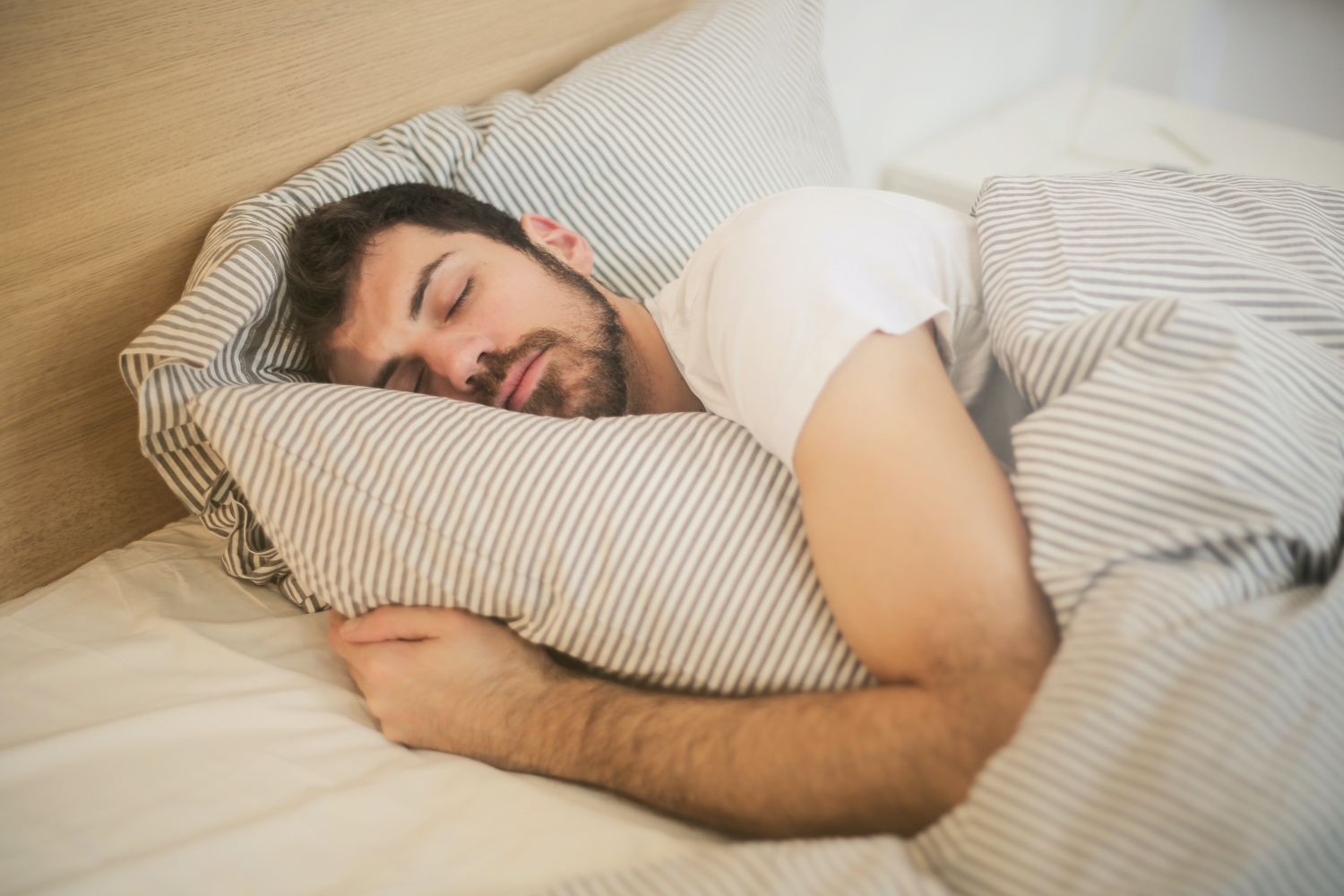
Room temperature is much more important than people make it out to be. Room temperature does not simply come down to personal preference, it affects sleep quality. When the body enters sleep, core body temperature lowers, if your bedroom temperature is too hot, it could lead to reduced REM sleep and restlessness or difficulty falling asleep.
Ideal temperature for sleep: 60-67 degrees Fahrenheit
60-67 degrees Fahrenheit is ideal for most adults, this allows for quality REM sleep, with comfort prior to bed time to help you fall asleep faster.
Too hot of temperature for sleep: Above 70 degrees Fahrenheit
Above 70 degrees Fahrenheit is generally too hot for most all people. This could lead to restlessness and lack of deep sleep.
Too cold of temperature for sleep: Below 60 degrees Fahrenheit
Below 60 degrees Fahrenheit could also cause issues with lack of circulation throughout the body, which could force the cardio vascular system to work harder than it should during sleep.
6. Keep a Sleep Schedule
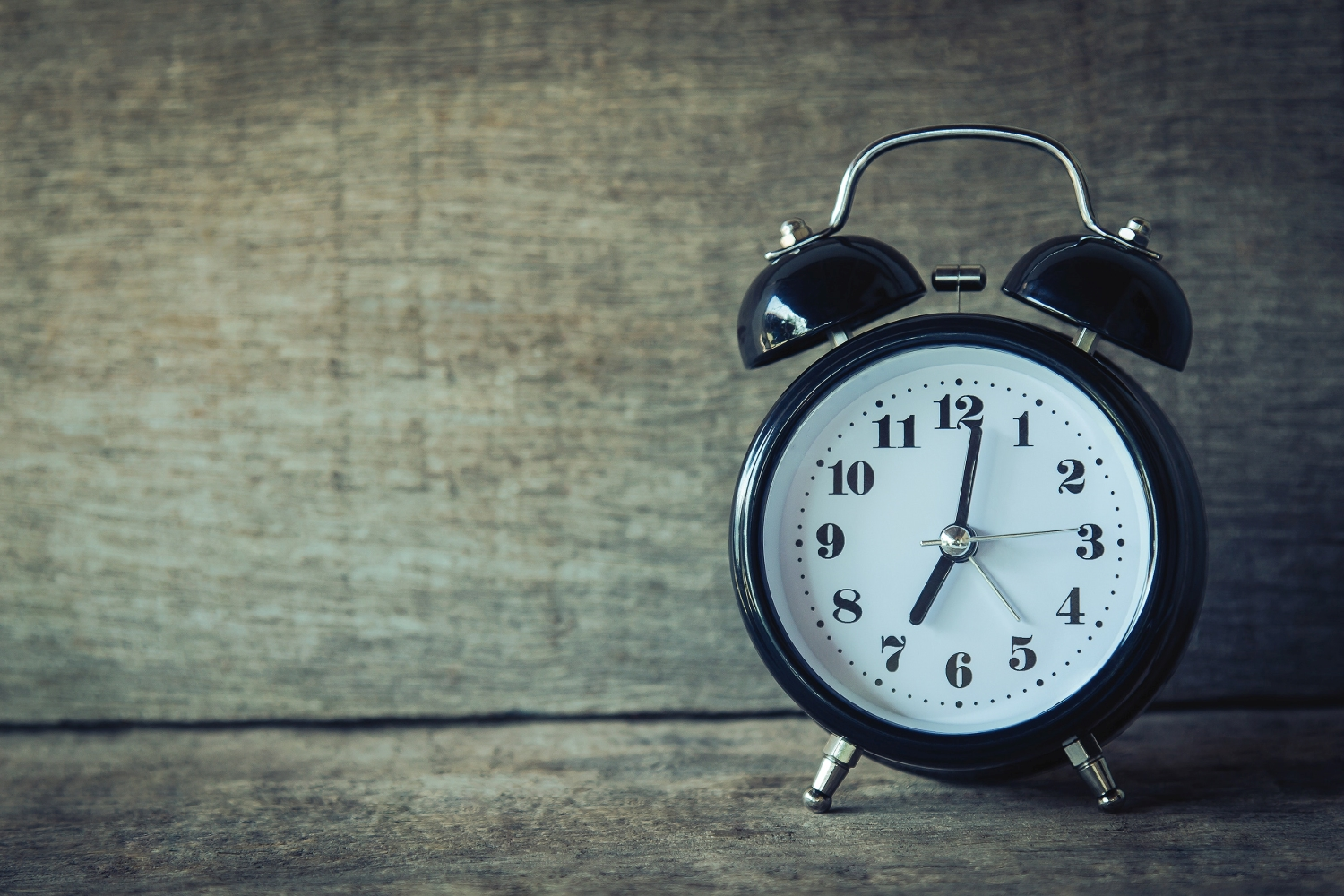
Having a sleep schedule is key falling asleep quickly. Your body's circadian rhythm is extremely important. Having a consistent bed time and waking time will set you up for success. This sleep routine allows you to achieve high amount of energy throughout the day and a easy time falling asleep.
7. Experience Sunlight and Darkness

Since the beginning of time our bodies have a tendency to align with sunrise and sunset. Giving yourself even just 10 minutes of sunlight upon waking can signal to your body that it is time to wake up and feel energized. Conversely giving yourself a minimum of 10 minutes of outside darkness can signal to your body it is time for sleep, improving melatonin production and setting yourself up for a good night's rest.
8. Reduce Nap Time
Naps lasting longer than 90 minutes have been shown to disrupt sleep quality and cause people to have trouble sleeping. If you do choose to take a nap during the day, it is important that these are kept to short durations. Shorter than 30 minute naps will allow you to have energy throughout the day, but avoid disrupting nighttime sleep. Of course, the best option is to simply avoid naps entirely, to have a consistent internal clock.
9. Get Active
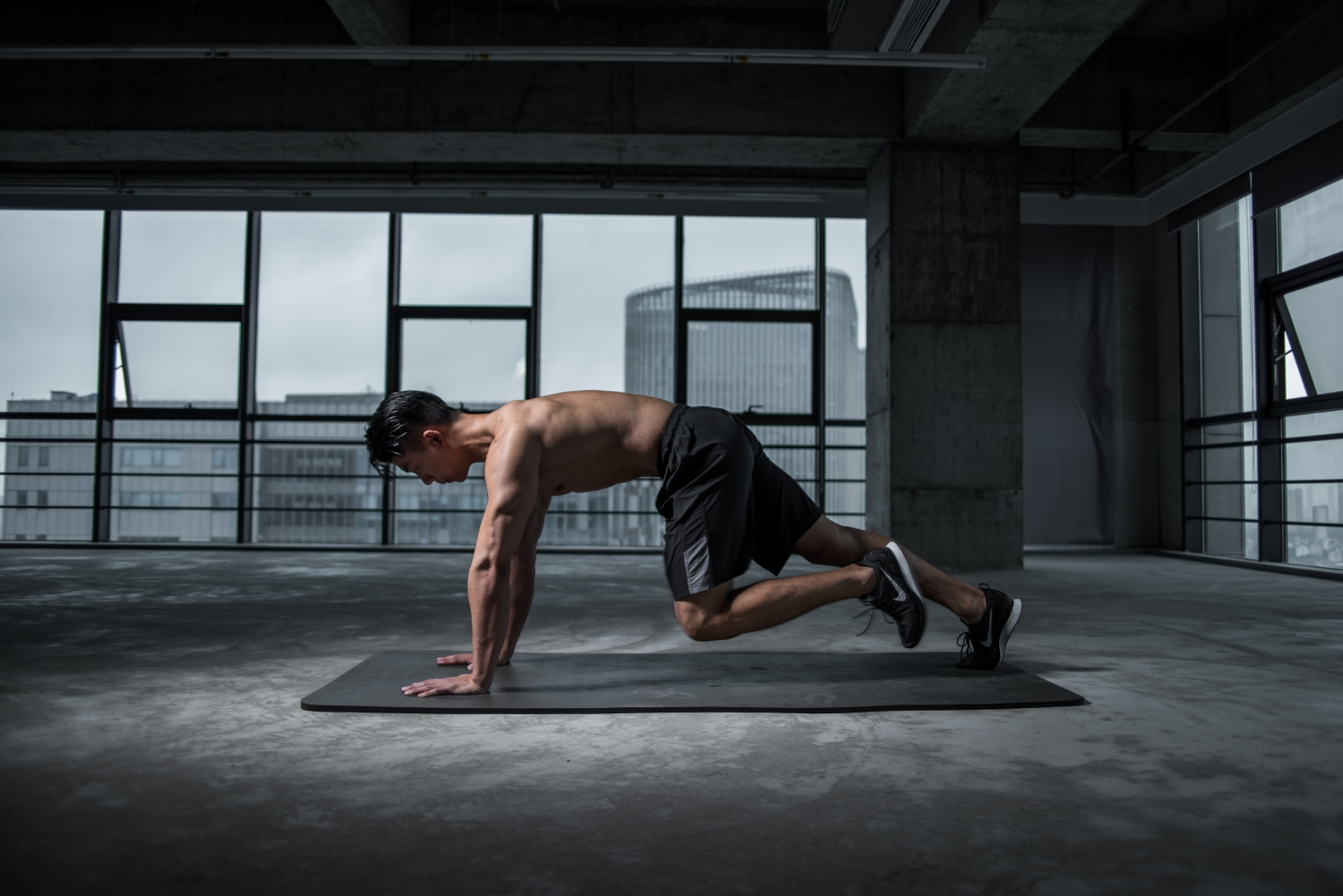
Staying active during the day is important. Feeling tired at the end of the day when it is time to wind down, is key in falling asleep quickly. If you have a relatively sedentary job, try to take some walks throughout the day and get some time in the gym. This will expend some energy, while also getting you more healthy, increasing overall well being.
10. Put The Phone Down
Phone or technology usage close to bed time can disrupt the bodies internal clock and make it hard to wind down. If possible, eliminate all technology usage 60 minutes prior to bed time. This will help signal to the body that it is time for bed, helping you have some good sleep. If this is not possible for you, try and use some blue light blocking glasses during that last hour or so to minimize the amount of harsh light entering your eyes.
11. Valerian Root
Valerian root is a great tool when truly having a difficult time sleeping. Melatonin is a common form of sleep medicine people use, but since it is a form of hormone supplementation, your body becomes reliant on it for a good night's rest. Valerian however, helps increase the amount of GABA in the brain, which simply helps the body relax and calm down before sleep, without having as much of an issue with reliance or tolerance. Try 300-600mg of valerian root 30 minutes before bed for best results.
12. Try a Sauna Session
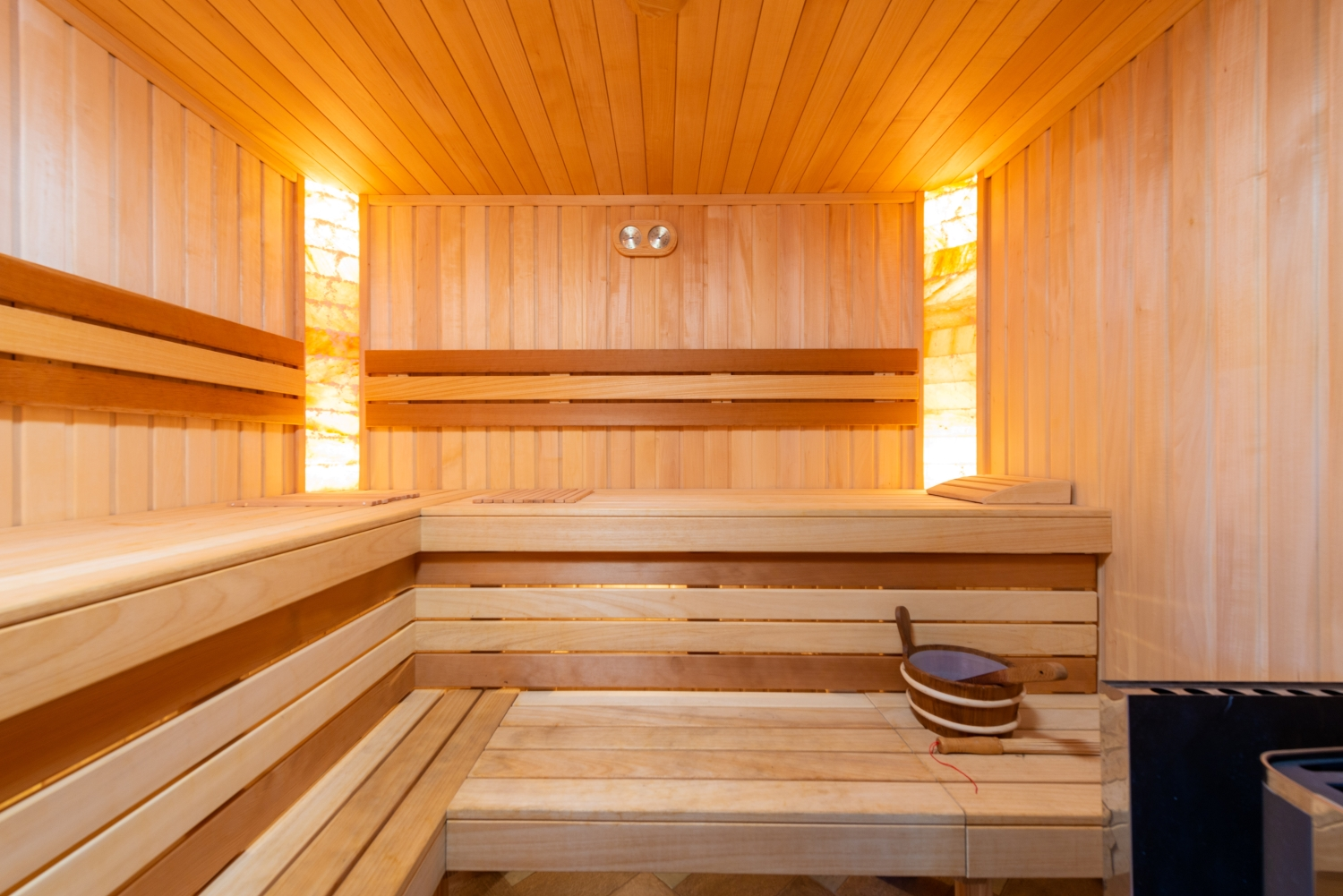
Sauna sessions, especially using infrared saunas, directly increase core body temperature which provides many different health benefits. An amazing part about using an infrared sauna is the post sauna cool down effect. This is your body's process of cooling back down to a normal body temperature after heat exposure. This effect is quite relaxing, and releases endorphins making you feel amazing. Try a sauna an hour before bed, followed by a quick shower to truly get your body ready to fall asleep instantly.


